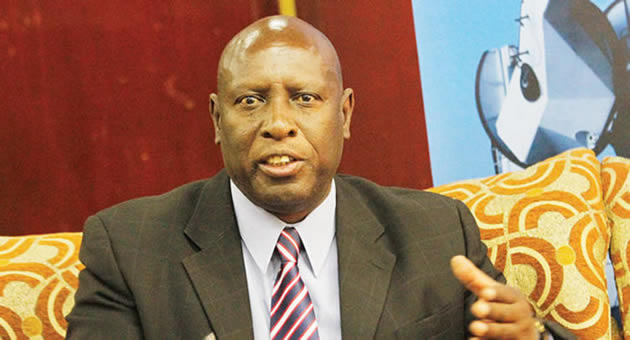Milestones we have achieved so far

Prosper Ndlovu
THE “Ease of Doing Business” has of late become a dominant topic in business and economic forums.
The government and the private sector, for the first time, are positively pulling in the same direction towards creating an enabling investor climate to foster robust economic progress.
Zimbabweans are impatiently waiting for tangible results in the form of practical implementation of identified interventions.
As such, taking stock of what has been achieved so far is critical as a measure of progress towards the desired destiny.
The government incorporated the ease of doing business to be part of a broader reform package aimed at improving the investment climate by addressing the administrative and legislative challenges that affect local and foreign investment.
This followed a realisation that the ease with which companies and individuals in a country are able to do business, affects how competitive and attractive a country is to potential investors.
Statistics tell a whole negative story in terms of how Zimbabwe is viewed by the international community in economic terms.
The country has not performed very well in this ranking having achieved 155th level out of 189 in the 2015 World Bank Ease of Doing Business index.
This explains the urgent necessity for investment reforms that the government, through the Office of the President and Cabinet (OPC), is spearheading as part of a strategy towards fulfilment of the country’s development blue-print, Zim-Asset.
According to the OPC, this reform process is being implemented over a period of 100 days using the rapid results approach, which is part of the results based management system methodologies.
The government strongly believes that the successful implementation of these various reforms will have a greater impact on the attainment of the Zim-Asset’s average 7,3 percent growth goals by 2018.
It is important to note that President Mugabe championed the doing business reform agenda in August 2015 when he directed public sector agencies to work together to ensure that targets of the reforms were met.
Eight months since the launch of the process by the Chief Secretary to the President and Cabinet on September 11, 2015, notable progress has been made although more work still needs to be done.
To ensure proper coordination and synchronisation of purpose, five thematic working groups were constituted during the first 100-days to December 31, 2015.
According to the OPC report the committees were focused on issues affecting starting a business, getting credit and resolving insolvency, protection of investors and enforcing contracts, construction permits and registering as well as paying taxes and trading across borders.
These have been identified to be key factors that affect the ease of doing business in Zimbabwe.
The government deserves applause for the milestones achieved so far as noted from the first 100-day period.
The report indicates that Cabinet principles for more than eight pieces of legislation, by-laws and regulations have been drafted, whilst various administrative processes within government ministries, departments and agencies have been streamlined.
Also, proposed amendments to the various pieces of legislation have been made.
These include the Companies Act, Shop Licencing Act and a review of the Town and Country Planning Act.
New bills have also been drafted on insolvency, movable property securities interest, and a Commercial Court Bill to permit expeditious settlement of commercial disputes; and the amendment to the Companies Act.
The report notes that a Memorandum of Understanding has been signed to consolidate the processes of paying taxes at Zimbabwe Revenue Authority by the Zimbabwe Manpower Development Fund and the National Social Security Authority through adoption of a single window tax payment system.
The single window tax payment system would drastically reduce the time taken by business people in making these payments to various agencies.
The parties concerned are still working on some operational and structural issues to make the transition mutually benefit to all, says the report.
Among the targets in terms of days/ hours of business is the reduction of the number of days to start a business from 90 days to 30 days.
The processing of construction permits have also been reduced from 448 days to 120 days while property registration now takes 14 days from 36 days.
Moreover, the time taken to pay taxes has been reduced from 242 hours to 160 hours.
“In summary, the achievements to date have improved the processes by almost 100 percent and there is potential for further improvements,” said Ray Ndhlukula, the Deputy Chief Secretary in the OPC.
He said the second phase of 100 days of the ease of doing business, which was launched on February 4, 2016, would ensure that the unfinished business of the first 100 days is completed, whilst setting other targets for the next 100 days.
Moving into the second phase, the government has said it was committed to bringing more coherence, alignment and better coordination of the reform process.
Going forward the government has directed focus on some key thematic areas – starting a business and protecting minority investors, enforcing contracts and resolving insolvency and getting credit.
The other two thematic subject areas remain unchanged.
These are paying taxes and trading across borders and construction permits and registering property.
Hopes are high that the second 100 days would largely deal with the legislative aspects of the reform process.
Information from the Ministry of Industry and Commerce indicates that the second phase is expected to be completed by the end of this month.
The OPC has since identified several pieces of legislation that are currently either before Cabinet or being drafted by the Attorney- General’s office.
Among these is the Deeds Registry Act, Small Claims Court, Commercial Court Act, High Court Act, Estate Administration Act, Insolvency Act, Movable Property Security Interest Bill, RBZ Act, Companies Act, Shop Licencing Act, Manpower Development Act, NSSA Act and the Regional Town and Country Planning Act.
Recently the Parliament of Zimbabwe held a workshop in Bulawayo where it expressed its readiness to support the reform process through fast-tracking crafting and review of the identified pieces of legislation.
Industry and Commerce Minister Mike Bimha has also announced that Cabinet has approved establishment of the National Competitive Commission (NCC).
This is a critical entity in addressing industry competitivess by addressing constraints related to cost drivers, which economic experts have blamed for stifling industry viability.








Comments